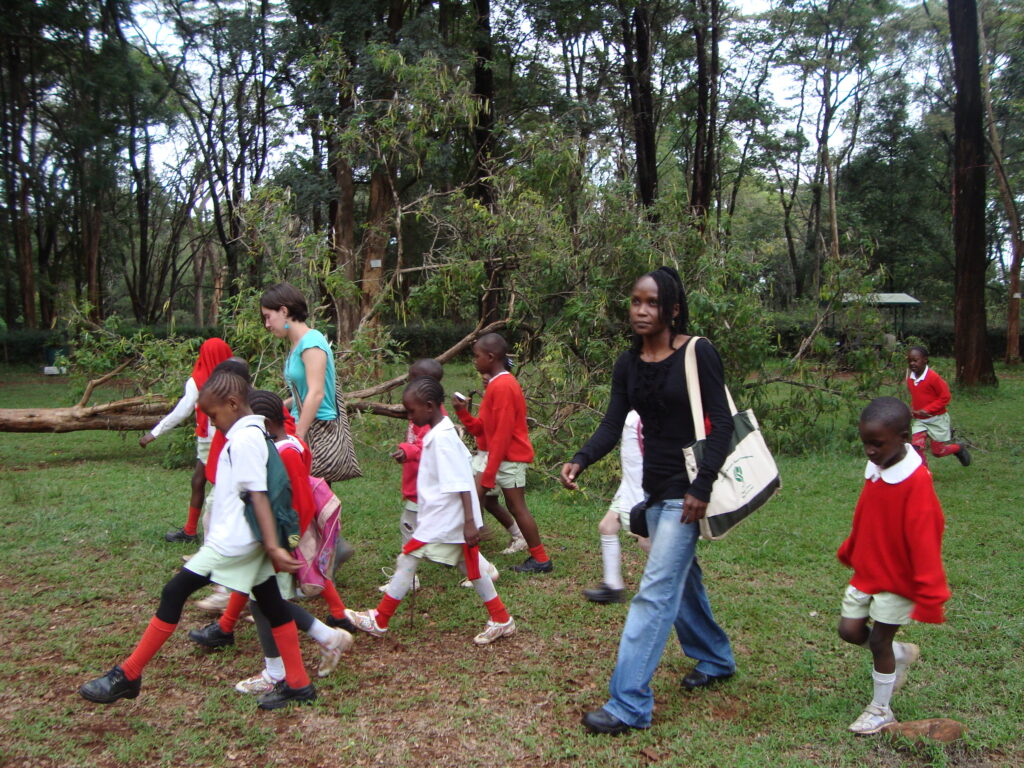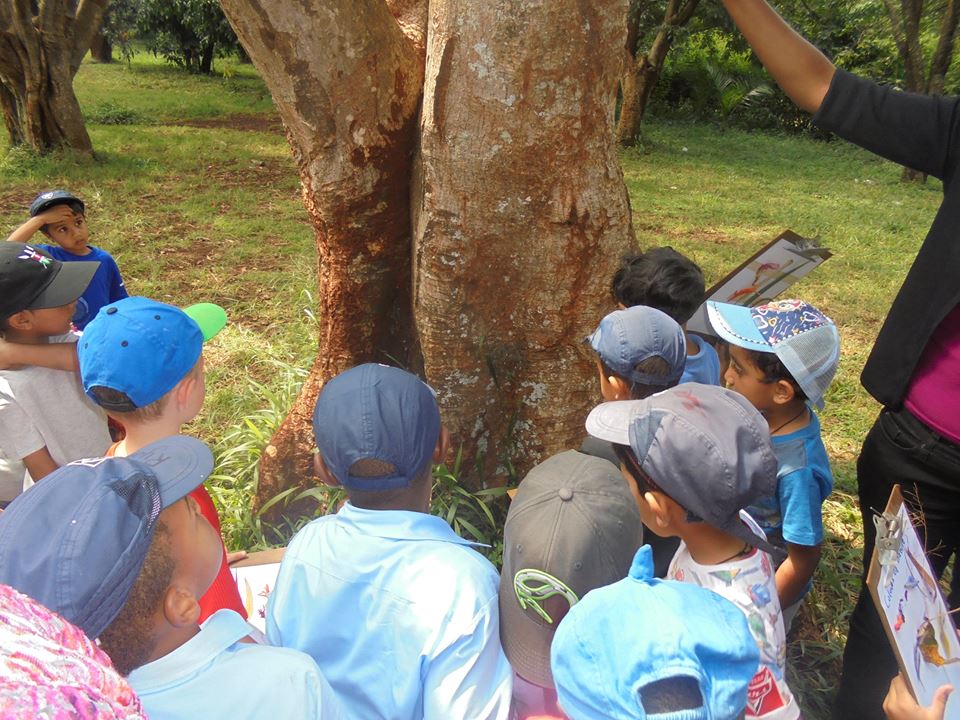Environmental education is a learning process that increases people’s knowledge and awareness about the environment and associated challenges, develops the necessary skills and expertise to address the challenges, and fosters attitudes, motivations, and commitments to make informed decisions and take responsible action (UNESCO, Tbilisi Declaration, 1978).

The learning process takes place either within the school system, in primary, secondary, and tertiary institutions, or is taught outside the traditional classroom, which includes in arboretums, zoos, parks, and nature centres that teach the public about the environment. EE is a multi-disciplinary field integrating disciplines such as biology, ecology, earth science, atmospheric science, mathematics, and geography.
Environmental education (EE) focuses on how individuals, communities, and organizations can manage behavior and ecosystems to live sustainably. It is built on the principles of sustainability and has the ability to inform, inspire, change/ influence attitudes, and encourage action that changes people’s lives, and transforms society, allowing people and nature to coexist productively. It connects more people to nature while providing the public with the skills needed to make informed decisions and take responsible action that lasts a lifetime.
It is carried out by the government, non-governmental organizations, community-based groups, and the private sector, which deliver environmental education and related activities to all sectors of the of society.EE can be carried out through print materials, websites, media campaigns, etc
Nairobi Arboretum Environmental Education Programme

The Nairobi Arboretum provides a wide variety of environmental educational programmes and learning opportunities for adults, youth, and school groups to raise environmental consciousness, connect wonders of nature, and gain a better understanding of Kenya’s trees, forests, and plant conservation. These educational and outreach programmes, further highlight the practical benefits of conservation for both humans and animal. The Arboretum provides an outdoor or hands-on learning experience for schools, teachers, and higher learning institutions (at all levels) that teaches them about the importance of plants, forest conservation, wetlands, sustainable development, and climate change.
The education programmes are done through:
a) Children’s education programmes
There are specific children’s education programmes that engage and allow the young ones to explore nature while having fun and playing in the environment in activities such as Art in the Trees, Trees and Mathematics, Nature treasure hunts, in the “outdoor classroom”.

This promotes learning by creating an environment that encourages discovery, experimenting, and makes learning fun for students.
Young children need many opportunities to play outside, question, imagine, discover, investigate, and make sense of how nature functions and changes over time. Further, trees help young children develop a deep and meaningful relationship with nature through explorations with their senses and discoveries. This is to inculcate and lay a lifetime foundation in their concern and caring for the environment at a young age, and to create a student population that possesses the positive attitudes and skills needed to manage the environment.

We hope that by providing students with opportunity to employ their senses in outdoor exploration, they will gain fresh insights and a deeper appreciation for the natural environment, particularly those from underprivileged neighborhoods
b) Secondary schools, teachers and tertiary learning institution programmes
The Arboretum provides a wide range of environmental education programmes and planned activities for teachers, college and university students, visiting the Arboretum for educational purposes. They can learn about:
- Sustainable development and the environment
- Ecology and conservation
- Trees and taxonomy
- Geography
- Climate change.
- Forest conservation
Some teaching approaches in the arboretum include in-house special lectures/films, hands-on science activities inspired by interacting with trees/plants, the environment, or nature. The teacher’s programme educate trainers who are responsible for shaping the next generation of scientists on how to use outdoor classrooms to teach science to young children or engage students in finding answers to environmental concerns through observations and exploration of nature.
Using outdoor classrooms has proved effective in supporting teachers in developing teaching and learning materials focused on the environment, its challenges, conservation, preservation, and management.
c) Adult education
Adult education at the Arboretum offers a variety of subjects to enrich your life and provides learning opportunities in many forms to encourage active participation.
These include:
Guided tree walks where one learns more about trees and their functions. Trees from many parts of Kenya and around the world can be studied in detail.
Lectures/films– Lectures/films inform and train the public on environmental issues
Compost and gardening courses– one or two-day courses for gardeners and other interested parties, where they come to learn about practical garden maintenance and how to convert litter into compost manure.
Self-guided tree walks – Two tree list trails with information about trees are available so that you can take a self-guided walk in the Arboretum (White tree trail with 10 trees and Yellow tree trail with 20 trees, each costing Ksh. 50). These can be purchased at the FONA office.
Interpretation panels, strategically placed at various locations within the Arboretum, provide information on the various trees and shrubs found at that point. There are also labels placed on the various trees that give information on specific trees.
Clean-up days where we invite the public to join us in making the Arboretum litter- free. Such activities are geared not only at cleaning up our green gem but also at creating awareness for the need of keeping the environment clean for our benefit and that of future
one-day course on various environmental topics.